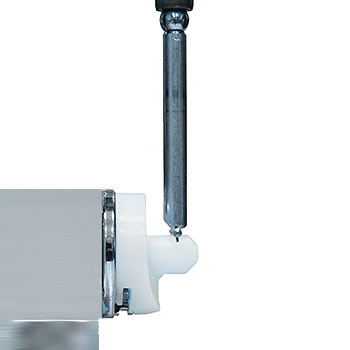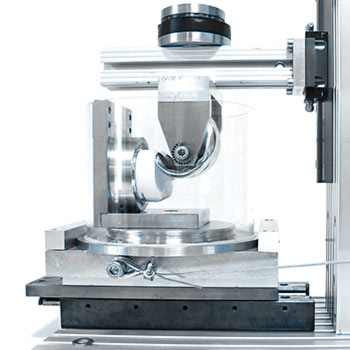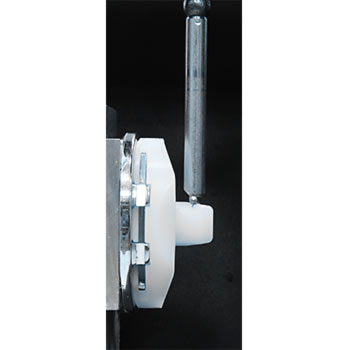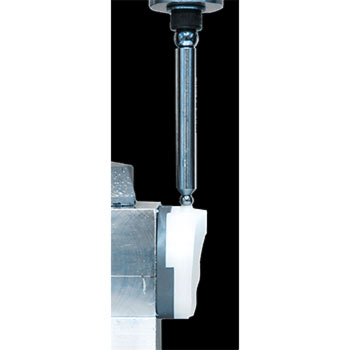Knieimplantate
alle Verfahren akkreditiert
Mechanische Tests an Modularen Knieimplantaten - ASTM F1814
Aktuelle Prüfverfahren
ASTM F1814: Standard Guide for Evaluating Modular Hip and Knee Joint Components
This guide covers several test methods to determine the device's safety.
Frequently performed tests are interlocking strength and tibial post fatigue tests.
To investigate the interlocking strength of modular tibial PS and CR inserts, static loads in anterior-posterior, posterior-anterior, mediolateral and tensile loading directions are applied.
In addition to the static tests, a dynamic insert disassembly test in posterior-anterior loading direction is possible.
Based on the tibial post fatigue test, the safety of PS-type knee implants can be determined under bi-axial loading conditions. The objective is to address the tibial post's fatigue strength and evaluate deformation and/ or fracture.
Insert aging prior to the fatigue tests is recommended.





